

The Project is financed by European Union and Republic of Turkey



 PLATFORM
PLATFORM
Providing healthy products that protect soil, water and nature.

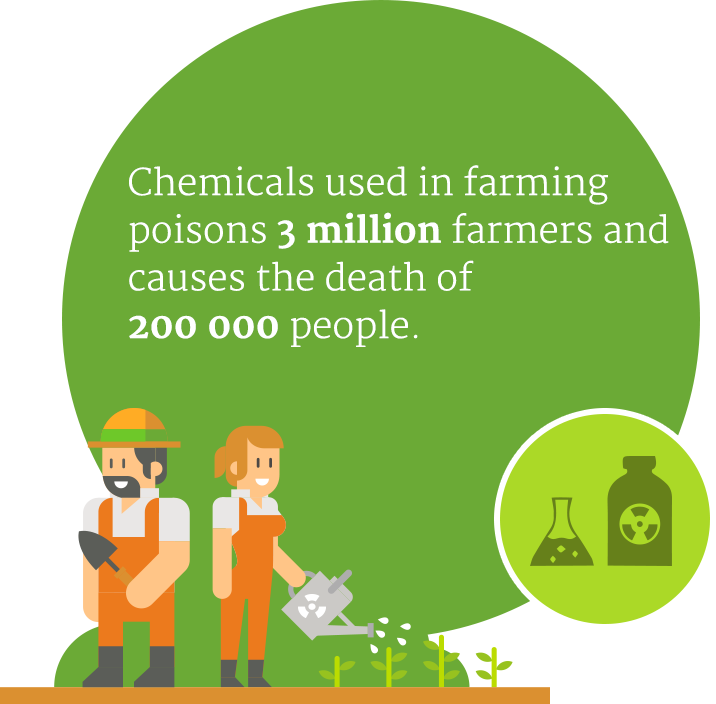
Organic products protect farmers’ and consumers’ health since organic products are free from chemical pesticides. Because of the pesticides used during agricultural practices, every year 3.000.000 farmers are poisoned and 200.000 people die. With industrial farming, the risk to have pesticide residue on/in food is 4 times more as compared to organic products..

Compared to industrial farming, products from organic farming contain 20 to 40% more antioxidants which strengthen the human immune system, and also contains 48% less cadmium, a toxic that threatens human health. Being rich in nutrition and free from antibiotics, organic dairy products aid in protecting our health.


Producers, consumers, and all society benefits: Costs and ultimately prices are rebalanced with organic farming. The cost incurred from damage to the environment and human health caused by industrial farming gives us a reason to further prioritize the protection of soil, nature and our health. Soil productivity increases while the cost of used input decreases with an improvement of soil health. "Yield decreases with organic production" is a common misconception.
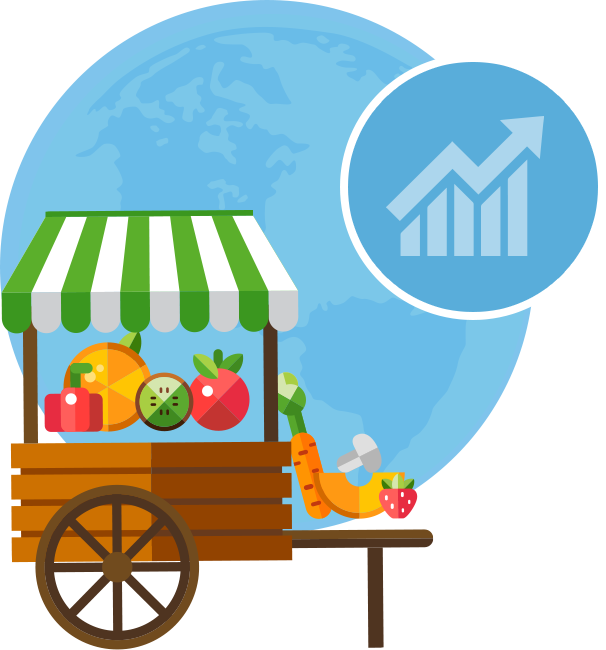
An example from China shows a farm with 87 decares being able to increase its earnings by 11 times with organic farming practices over 10 years. Furthermore, organic farmers benefit form organic agricultural subsidies in addition to their present agricultural subsidies.

Organic farmers receive state support in addition to the sum conventional farmers receive. Farmers and farmers’ unions are given priority when receiving agricultural support which include low interest-rate loans, direct income support, agricultural land protection support, good farming practices, soil test support and more.

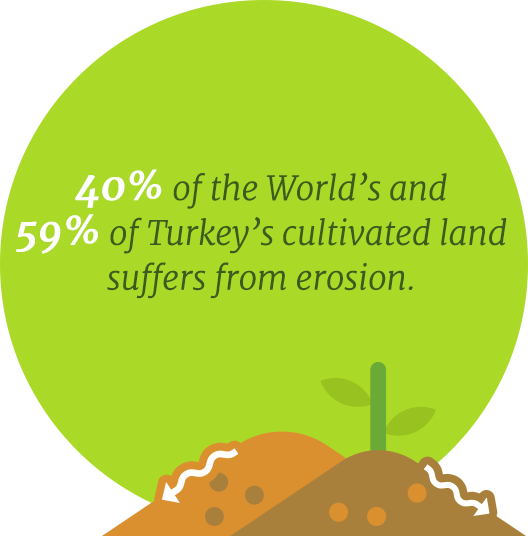
Intensive tillage is being practiced in industrial agricultural practices. The soil suffers from erosion, whereby soil, upon being uncovered through tillage, becomes looser and movable because of rain and wind. Furthermore, healthiest and most fertile part of the soil vanishes with soil erosion. 40 % of the World’s and 59 % of Turkey’s cultivated land suffers from erosion. Every year Turkey loses 0.8 mm of its fertile soil, leaving future generations with infertile soil.
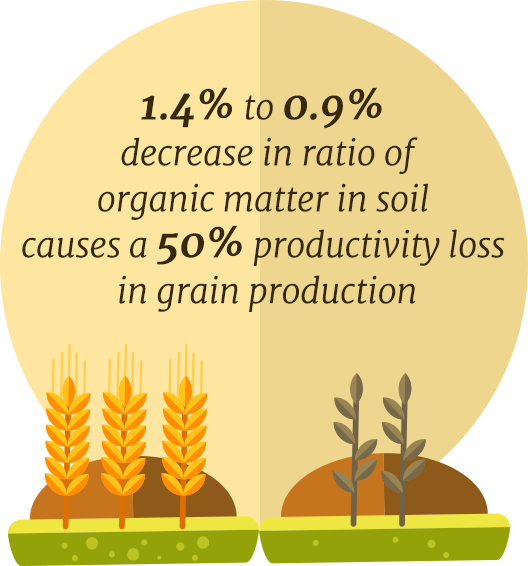
The top layer (0-25cm) of the soil constitutes the utmost of nutrients and organic matter: It is where 95% of nitrogen and 25% to 50% of phosphorous in soil are located. With erosions we lose the most fertile part of the soil. The lost soil consists 1.3-5 times more organic matter than the remaining.soil, which is more infertile with decreased levels of organic matter. A 1.4% to 0.9% decrease in ration of organic matter in soil causes a 50% productivity loss in grain production. Organic agriculture heals soils by increasing their organic matter and humus content. Furthermore, soil particles are tightly held preventing soil from erosion.
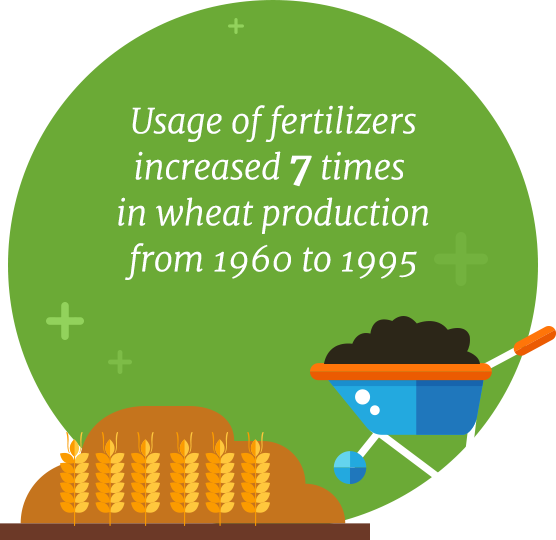
In the case of crop yield decrease, farmers tend to use more chemical fertilizers. This explains the seven-fold increase in fertilizers used in wheat production during 1960 to 1995. While in 1960 one could reap a 70% increase in wheat from 1kg of nitrogen fertilizer, today the increase is only 25%. The usage of chemical fertilizers degrades the soil structure, decreasing microorganism activities. Taking pesticide usage into account, edaphones begin to face extinction.
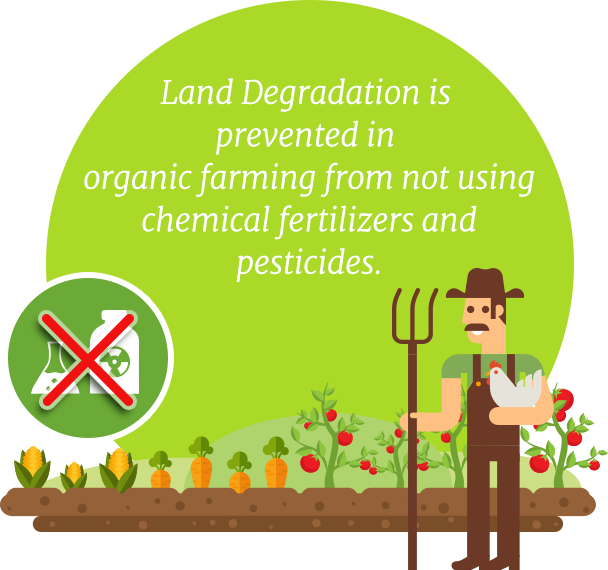
Soil degradation occurs due to erosion and use of chemical fertilizers and pesticides. 1/3 of the world’s arable lands have degraded over the past 40 years. Every year 12 million hectares of land is being degraded. The effect of the degraded land is equal to a loss of 20 million tons of cereal production. Organic farming prevents land degradation from not using chemical fertilizers and pesticides.

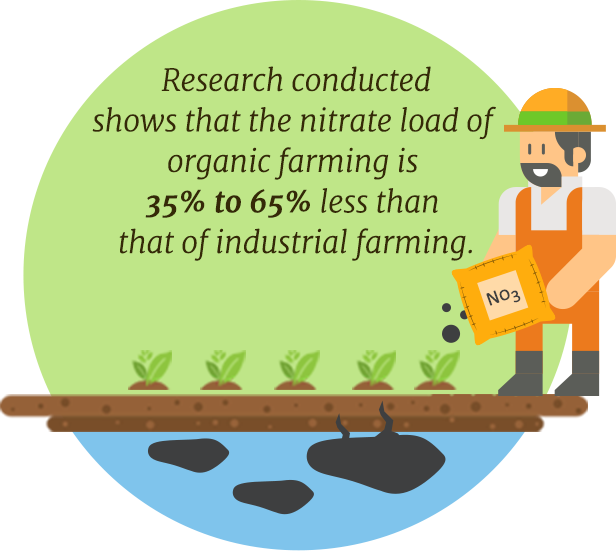
Only 18 to 49 % of the applied fertilizers are consumed by plants – some of the rest reach underground waters, running waters, water bodies such as lakes and seas with rain, while some evaporate into the atmosphere. Nitrogen chemical manures cause nitrate pollution on surface and ground waters. Any amount of nitrate over 10mg per liter of water threatens both human health and ecosystems. Agriculture-based nitrate pollution has been observed in river basins in Turkey where intensive agriculture is being practiced. Research conducted shows that the nitrate load of organic farming is 35 % to 65 % less than that of industrial farming.

Only 0.1 to 6% of pesticides, a kind of poison, reach its targeted species. The remaining 94 % to 99.99 % kills other species, and passes into soil and water. A 10-year long research conducted in 51 main river basins in the US shows that at least one kind of pesticide, or its modified version, have been observed in every water sample taken. The research shows that pesticides are a threat to human health and aquatic ecosystems where agricultural pesticides are present all year long on land, or archaic pesticides in wells and fish.
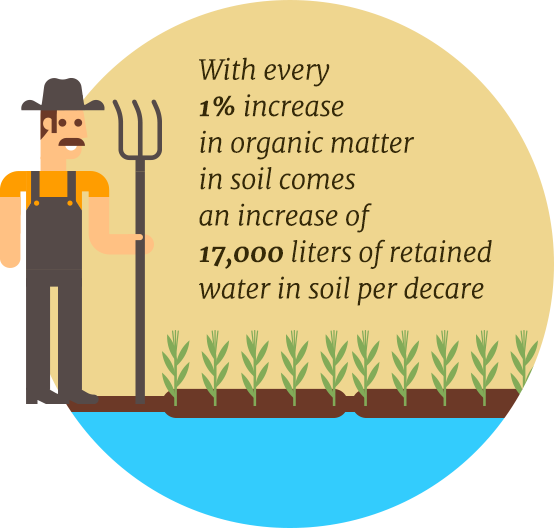
Since fertilizers and pesticides are not used in organic farming, water assets are not polluted. In addition, soils with increased organic matter store more water: With every 1% increase in organic matter in soil comes an increase of 17,000 liters of retained water in soil per decare.
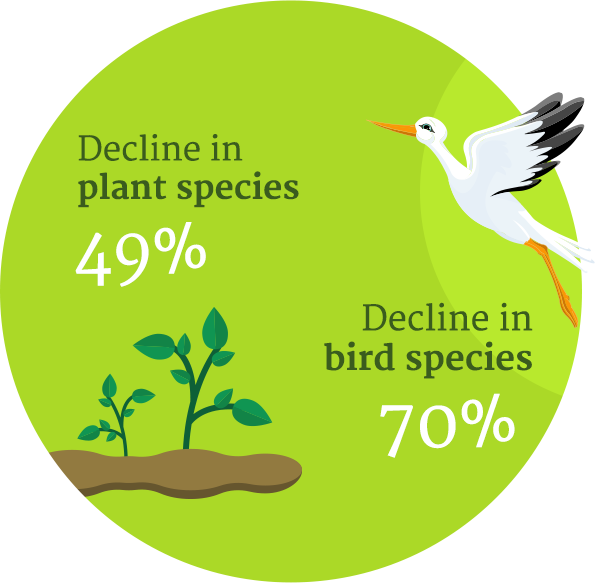
As a living ecosystem, the species found in soil constitutes 25% of all species. In just one spoon of healthy soil, more soil species than the entire human population can be found. The health and productivity of a soil depends on the species it contains. Yet, agricultural chemicals decrease biodiversity by killing species in the soil and its surrounding ecosystems. It has been stated that 70% of bird and 49% of plant deaths are caused by agricultural chemicals.
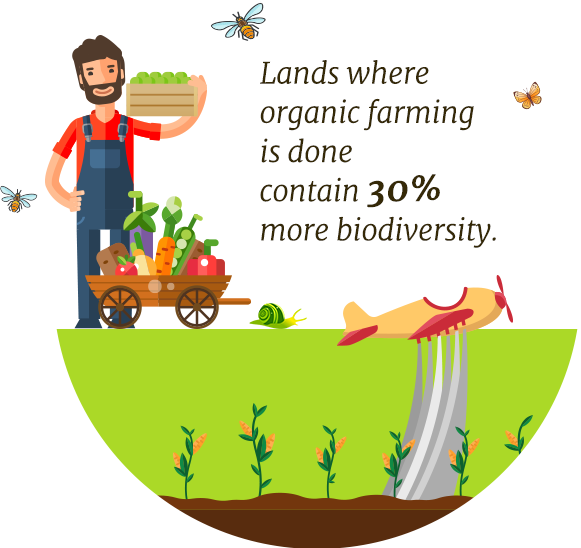
Since fertilizers and pesticides are not used in organic farming, biodiversity is protected. In fact, these lands serve as shelters for them. Land where organic farming is practiced contains 30% more biodiversity and the bio-density is 30% higher.
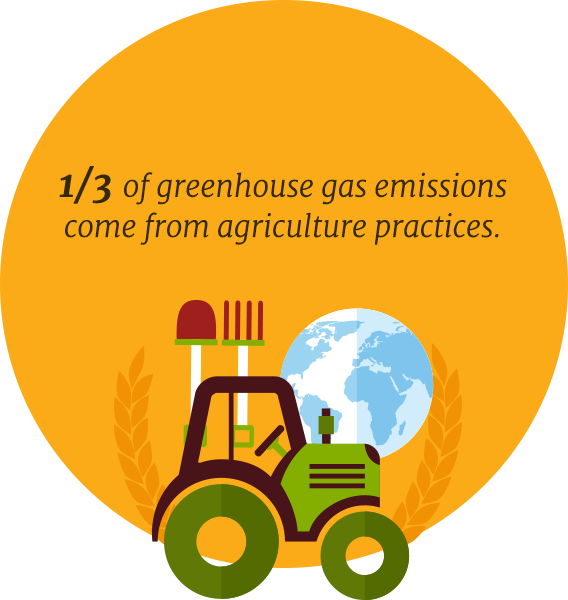
Organic farming is the most effective agriculture practice for combating climate change. According to IPCC reports, agriculture produces 10 – 12 % of the greenhouse gas emissions that causes climate change. Emissions caused by the use of chemicals in agriculture practices are not included in these numbers. The agriculture industry produces 1/3 of the cumulative greenhouse gas emissions when including the international transportation of agriculture products.
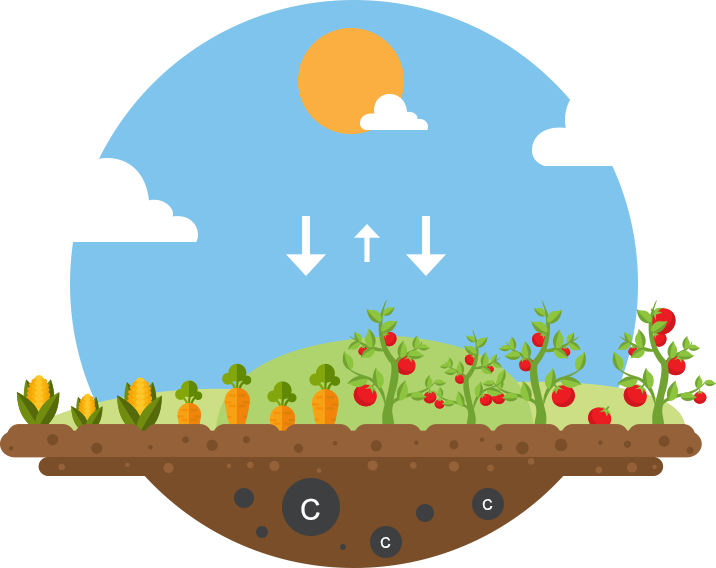
It is estimated that if organic farming is practiced on all agriculture land, the greenhouse gas emissions will reduce by a total of 20 % out of which 10 % will be reduced from not using chemical fertilizers and 10 % by using less energy. Furthermore as compared to industrial farming, organic farming stores more than 10 tons of carbon in 1 hectare of land.

It is been forecasted that climate change will cause land degradation on 70 % of arid and semi-arid areas. However, it is possible to reduce and even reverse the effects. An example in Tigray, Ethiopia shows 1 million hectares of degraded area has been revived with agro-forestry, composting practices and rotation of legume crops which have doubled production.